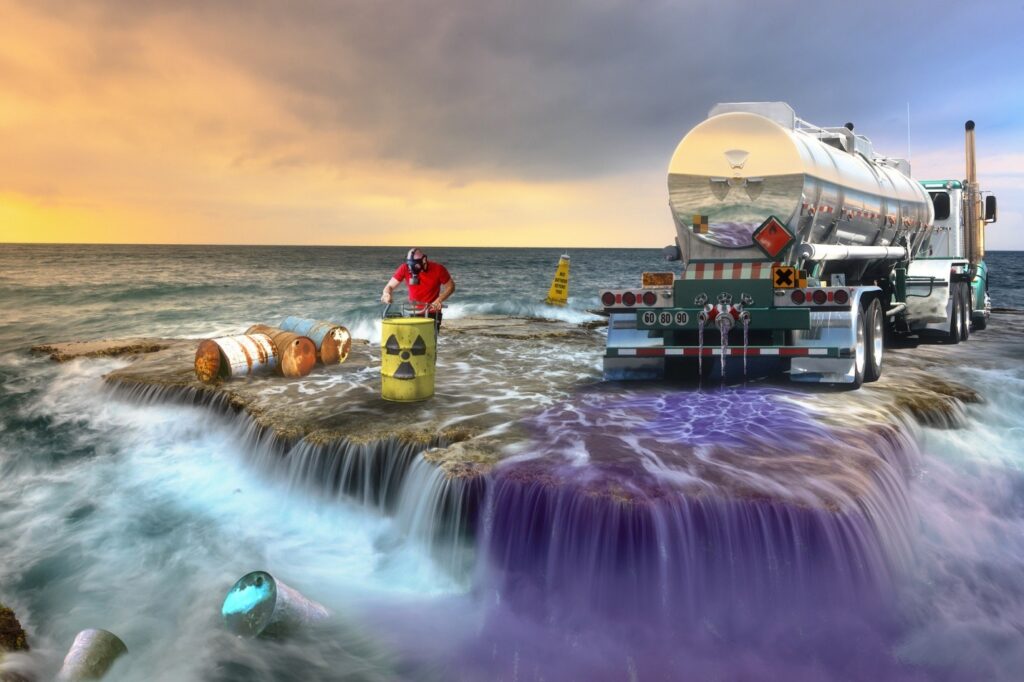The 4-Minute Rule for Reclaim Waste
The 4-Minute Rule for Reclaim Waste
Blog Article
The Facts About Reclaim Waste Uncovered
Table of ContentsThings about Reclaim WasteThe 10-Second Trick For Reclaim WasteA Biased View of Reclaim WasteThe smart Trick of Reclaim Waste That Nobody is Talking AboutReclaim Waste Things To Know Before You Buy
Residential sewage waste refers to the waste and products from a household septic tank. The appropriate monitoring and disposal of domestic sewage waste require fluid waste to be moved to a sewage treatment plant where the appropriate approaches and equipment are applied to cleanse and dispose of waste.
Commercial waste typically includes prospective hazards, such as flammable products or a mixture of fluid and strong waste items, and requires a much more innovative and comprehensive disposal procedure. The disposal of industrial waste typically entails the purification of waste before transport to ensure safe and proper disposal. Industrial waste is created from by-products and drainage of industrial processes and manufacturing.
This kind of waste can not utilize the very same sewer management transportation or processes as septic or industrial fluids. The hazardous waste management process calls for the evaluation and screening of liquid waste prior to it undergoes the disposal process (liquid waste disposal). Drainage waste is the liquid waste that comes from drainage and excess stormwater in very populated locations or cities
Runoff waste can create contamination and flooding otherwise handled properly. Find out more concerning drain cleansing and waste monitoring. Guaranteeing proper waste management can prevent disasters and lower ecological injury. Both people in property setups and experts in industrial or manufacturing sectors can gain from recognizing the procedures and laws of fluid waste administration.
All about Reclaim Waste
Get in touch with PROS Providers today to discover concerning our waste administration and disposal solutions and the appropriate methods to look after the liquid waste you create.
(https://www.blogtalkradio.com/reclaimwaste1)This supposed 'wastewater' is not just an essential source however, after treatment, will certainly be released to our land, waterways or the ocean. Utilized water from toilets, showers, bathrooms, kitchen sinks, laundries and commercial processes is recognized as wastewater.

water made use of to cool equipment or clean plant and tools). Stormwater, a kind of wastewater, is overflow that flows from farming and urban locations such as roof coverings, parks, yards, roads, courses and seamless gutters right into stormwater drains, after rainfall. Stormwater flows unattended directly to regional creeks or rivers, at some point reaching the sea.
All about Reclaim Waste
In Queensland, a lot of wastewater is treated at sewer treatment plants. Wastewater is moved from domestic or commercial sites with a system of sewage systems and pump terminals, understood as sewerage reticulation, to a sewer treatment plant. City governments construct, keep and run most sewer therapy plants. Operators are licensed under the Environmental Protection Act 1994 to discharge treated wastewater at an acceptable ecological criterion right into rivers.
The Department of Natural Resources advises neighborhood federal governments concerning handling, operating and preserving sewerage systems and treatment plants. In unsewered locations, city governments may require householders to mount specific or house sewer treatment systems to treat domestic wastewater from toilets, kitchens, restrooms and laundries. The Department of Natural Resources authorizes the use of family systems when they are confirmed to be reliable.
The majority of stormwater gets no therapy. In some new class, treatment of some stormwater to remove clutter, sand and crushed rock has actually started utilizing gross pollutant catches. Wastewater therapy happens in four phases: Eliminates solid issue. Larger solids, such as plastics and various other things incorrectly released to drains, are removed when wastewater is gone through screens.
Wastewater then flows right into huge tanks where solids clear up and are removed as sludge. Grease and residue are skimmed from the surface area. Makes use of tiny living organisms called micro-organisms to damage down and remove staying dissolved wastes and fine fragments. Micro-organisms and wastes are integrated in the sludge. Removes nitrogen and phosphorus nutrients that might cause algal blossoms in our rivers and endanger aquatic life.
Our Reclaim Waste Statements
Nutrient elimination is not available in all sewage treatment plants because it needs pricey specialist equipment. It is ending up being extra usual in Queensland. Clear liquid effluent produced after treatment may still contain disease-causing micro-organisms. If this effluent is launched right into rivers such as rivers or the sea, the micro-organisms will at some point pass away out.

Most wastewater moves into her latest blog the sewerage system. Under the Act, neighborhood governments administer approvals and licences for eco pertinent tasks (Ages) entailing wastewater launches that may have a neighborhood effect.
All about Reclaim Waste
Tracking gives factual information regarding water top quality and can verify that licence conditions are being fulfilled. The information obtained through monitoring offers the basis for making water high quality choices.
Report this page